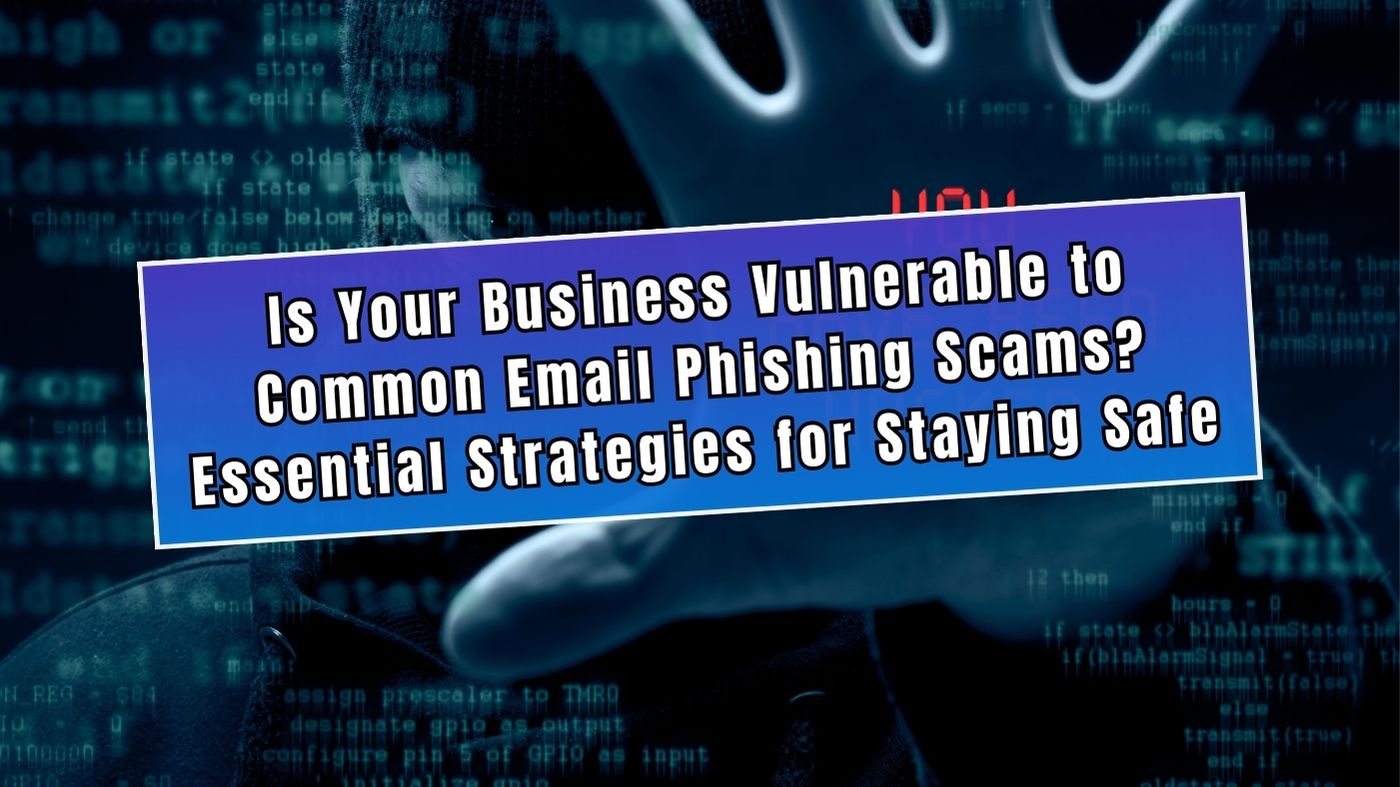In today’s digital landscape, it is crucial for businesses to stay vigilant against cyber threats and educate employees about online scams that pose a risk. Understanding this information is crucial for safeguarding business data, such as login credentials and banking information, from potential compromise.
At TN Computer Medics, we’ve assisted numerous businesses in enhancing their cyber security and providing top-notch protection against cyber threats. Regrettably, companies often face the challenge of dealing with phishing scams and emails, which pose a significant vulnerability. Here, we delve into their nature, the typical variations of phishing emails, and provide guidance on safeguarding oneself from such threats.
What is phishing, and what are phishing emails?
Phishing involves a cunning cyber attack strategy in which scammers cunningly trick individuals into divulging sensitive information, including login credentials, personal particulars, or financial data. Usually, they will present themselves as a reliable individual or company that you are already familiar with, often through emails, messages, or websites that seem genuine.
Phishing attacks often rely on psychological tactics to manipulate and deceive recipients into taking immediate actions, such as clicking on harmful links, opening malicious attachments, or providing sensitive information. The main objective is to gain unauthorized access to sensitive data, compromise accounts, or deliver malware, which poses a significant threat to individuals, businesses, and organizations.
Phishing emails are a form of fraudulent activity. Be cautious of these misleading emails sent by cybercriminals to your email address. They are cleverly designed to appear reliable and deceive you into revealing valuable information. They can be quite sophisticated and, ultimately, difficult to differentiate from regular email communication.
Types of phishing emails commonly encountered
Being aware of the latest tactics can greatly improve your ability to detect phishing emails, even if they are cleverly disguised. One approach is to analyze the most prevalent phishing emails from the previous year, which can be divided into three categories: significant, moderate, and minor.
Key topics:
Be cautious of phishing emails related to finance notifications.
- Finance-related phishing emails are the most common type of attack, making up a significant 54% of all incidents. These emails often contain false information. invoices or payment requests designed to trick recipients into revealing their financial information.
- Notification phishing emails come in a close second, accounting for 35% of attacks. These emails create a sense of urgency, claiming that passwords are about to expire or need immediate attention.
Themes of a moderate nature:
- Beware of fraudulent schemes
- Be cautious of fraudulent voicemail schemes
Scammers targeted documents in a significant portion of attacks, making up 38% of the total. Voicemail scams were also prevalent, accounting for 25% of attacks. These strategies use deceptive files or messages designed to trick you into compromising your security.
Beware of scams that deceive individuals into engaging with fraudulent or harmful documents. Attackers frequently employ deceptive tactics by utilizing files that appear to be authentic, such as email attachments or links. The documents may contain harmful elements, such as malware or phishing links, often disguised in familiar and trusted file formats.
Lesser topics:
- Advantages Taxation
- Employment opportunities Real estate
Remaining vigilant about less common phishing attempts is crucial for maintaining security. This covers emails regarding benefits, taxes, job applications, and property. Once more, they will probably appear authentic and attempt to persuade recipients to click on links, open files, or disclose sensitive information.
Tips for handling suspicious emails
Be cautious of emails that may appear genuine, but keep an eye out for telltale signs such as spelling mistakes, subpar grammar, low-quality visuals, a sense of urgency, hyperlinks, and attachments.
When encountering suspicious emails or potential phishing messages, it’s crucial to remain alert and rely on your intuition to exercise caution. Exercise caution and refrain from clicking on any links or downloading files. It is important to report any phishing attempts to your email provider and inform your colleagues as well. If you come across a suspicious email, it’s best to delete it immediately without even opening it. Additionally, you have the option to block the sender to prevent any further unwanted messages.
If you suspect a compromise or had any interaction with the email, it is crucial to update your passwords and make sure they are strong and unique.
Tips for safeguarding against phishing attacks
It is highly recommended to take proactive measures to safeguard your business against phishing attacks.
Make sure you have:
- We have implemented robust cyber security measures to ensure the safety of your data.
- Staff trained to recognize the risks of phishing Encouraging a culture of caution and attentiveness towards suspicious and fraudulent emails
- Current software and operating systems
For optimal security, it’s important for businesses to implement a robust set of measures. This includes utilizing a firewall and reliable anti-spam and anti-malware software, as well as implementing secure password management practices.
Without proper cyber security measures in place, individuals and businesses can be exposed to fraudulent activities that can lead to financial harm. unauthorized access to sensitive information, and harm to a company’s image. It is crucial to safeguard your company’s valuable assets from cyber threats by staying informed and implementing strong security protocols.
Get in touch with TN Computer Medics to learn more about our top-notch cybersecurity services.
At TN Computer Medics, we specialize in providing top-notch cyber security solutions for businesses of all sizes. With our extensive experience, we can help protect your company from phishing, cyber threats, malware, ransomware, data breaches, and online attacks. Our services utilize state-of-the-art technologies to ensure the security of your business. We offer regular risk assessments, employee training, and data backups to provide you with added peace of mind and confidence.
By enlisting the expertise of a cyber security specialist, you can effectively safeguard your business data from phishing attacks and other online scams. Start your journey with us today and schedule an IT security audit to gain a deeper understanding of your existing IT systems and develop a customized security strategy.

